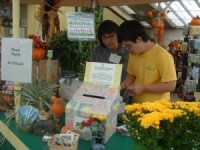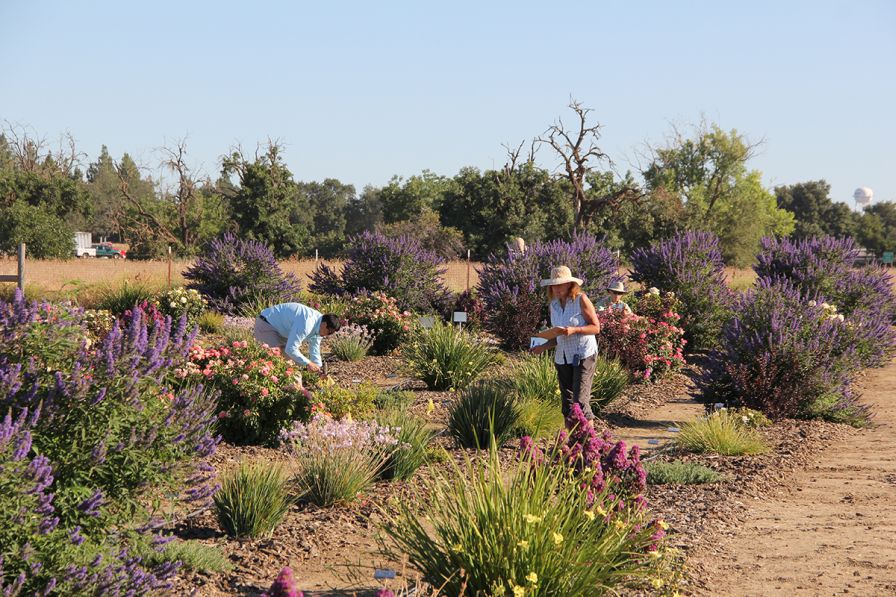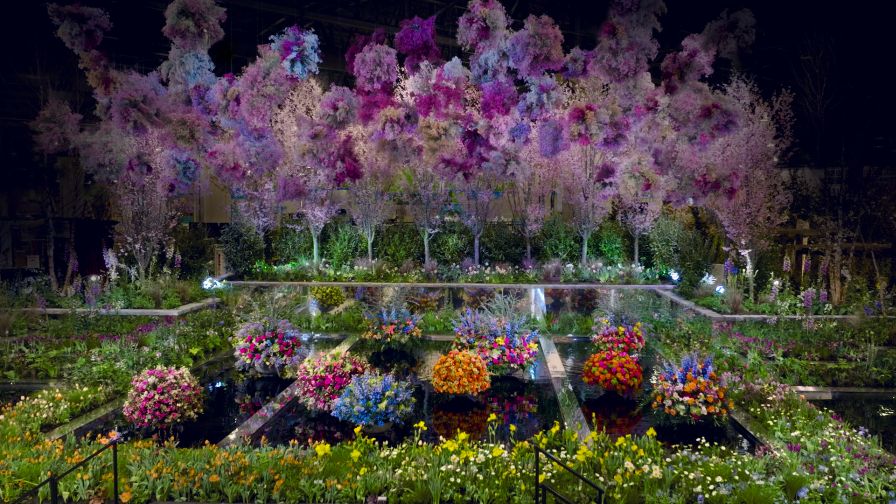Brookwood Community and We Grow Dreams Enrich Lives Of Employees

Most garden centers have goals such as increased profit, retailing quality plants and even enhancing the lives of customers by providing beautiful plants.
The Brookwood Community in Brookshire, Texas, and We Grow Dreams in West Chicago, Ill., are two garden centers with those same goals, but they share an additional goal that differentiates them from the average garden center. They strive, above all, to enhance the quality of life of disabled adults by providing meaningful job opportunities.
The Brookwood Community
Founded in 1985, the 475-acre Brookwood Community is a God-centered educational, residential and entrepreneurial community for adults with functional disabilities located just west of Houston. The community includes 110 full-time residents and 60 adults who participate in a day program.
One foundational aspect of Brookwood is to build self-esteem and self-worth through job training. The community supports several entrepreneurial enterprises including a café, candlemaking, garden statuary, food products and horticulture, among others. The horticulture enterprise is the largest, generating $1.5 million in revenue.
Joel Kempfer, horticulture manager, oversees production. Kempfer has a horticulture degree from Texas Tech and previously managed a retail garden center. Brookwood currently has 47 greenhouses on 5 acres, but is in the process of gathering quotes for six new Quonset houses to increase production of annual flats for landscapers.
Citizens are involved in numerous greenhouse tasks like planting, vegetative propagation, moving and spacing plants, cutting back overgrown plants, attaching barcodes and inserting water tubes, just to name a few examples.
“In horticulture, there is something for everyone to do,” Kempfer says. “If adults are in a wheelchair, they can work at a propagation bench, or if they are low functioning, they might attach bar codes.” A staff of 15 full-time growers and assistants are employed to “finish” the plants, handling day-to-day maintenance such as irrigation and pest control.
Their largest crop is poinsettias, with 42,500 planted this year. Ninety percent will be sold to Houston area churches, businesses and school fund-raising groups. The remaining 10 percent will be sold in the three Brookwood retail stores.
The horticulture “shop” tries to grow and sell everything customers would find in any other garden center. They do outsource some bread and butter shrubs to local growers to offer the full complement of landscape options. While citizens don’t work in the garden center, Kempfer hopes customers realize their dollars are not only getting them the highest quality plants but the revenues are supporting Brookwood’s mission.
There are two special education teachers in each shop. In the horticulture department, the teachers have developed templates and tools that help the citizens meet the production goals. For example, they might use a template with a ruler at each propagation station to illustrate the correct cutting size, or use a tool to create a hole that is the proper planting depth.
“Here, there is no thought of ‘oh, that poor dear.’ These citizens are friends and co-workers; they become a second family,” he says, adding the environment provides an improved quality of life. “Our residents are far-exceeding the life expectancies associated with their disabilities.”
We Grow Dreams, Inc.
Donna Jarmusz is president and chairman of the board for We Grow Dreams, Inc. She is also a parent of a disabled adult and one of three founding families that turned their dream into a reality. The founders considered several industries that might provide job opportunities for disabled adults who were too often left with few opportunities that accommodated their special needs, including the fact that it is difficult for many to work 40 or even 20 hours a week.
They settled on horticulture because it was labor intensive and was still relatively low-tech. In December 2004, We Grow Dreams became a non-profit and purchased a greenhouse facility in their community. In April 2005, they opened the greenhouse and plunged into their first season.
Though the cofounders were avid gardeners, they had no professional horticultural training. They do employ a small, full-time staff year-round, but they largely rely on volunteers. By coincidence, We Grow Dreams shares the same ZIP code as Ball Horticulture. Jarmusz says: “Ball has been very supportive, providing technical expertise as we were getting started, donating used plant benches they no longer needed and running in the first We Grow Dreams 5K.”
There are currently 50 team members who work a minimum of 10 hours per month and are paid minimum wage ($8/hour in Illinois) during their job training. Two individuals have transitioned to become regular employees of We Grow Dreams, while others have gone on to work for landscapers or greenhouses in the area.
The We Grow Dreams facility is 5 acres with 23 greenhouses. The peak season is mid-May through late July when they sell annuals, perennials, vegetables and herbs. They create mixed containers and specialty hanging baskets to differentiate themselves from the big box stores.
“Ninety-nine percent of what is sold on-site is grown on-site,” Jarmusz says. While they’d like to expand the retail operation, they sell wholesale to other retailers, landscapers and fund-raising groups.
A key part of their mission is to find a place for any disability–mental, physical or both. Family members of team members are also required to volunteer 10 hours each month at the garden center.
Jarmusz adds: “I could tell you countless stories of team members whose social skills have blossomed as they’ve learned interaction and recognized they are a part of this process of growing a plant they can see from start to finish.”
These communities are just two examples of horticulture making a difference in the lives of individuals. And both are exceeding their goals.








